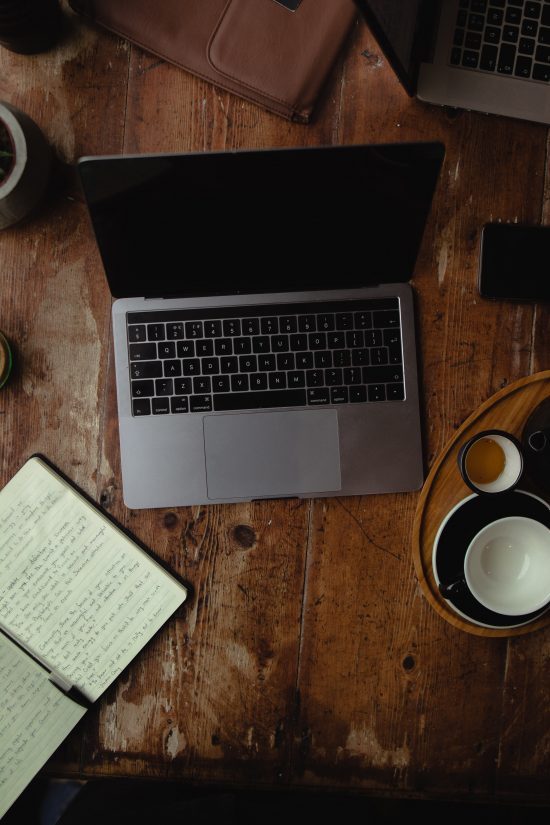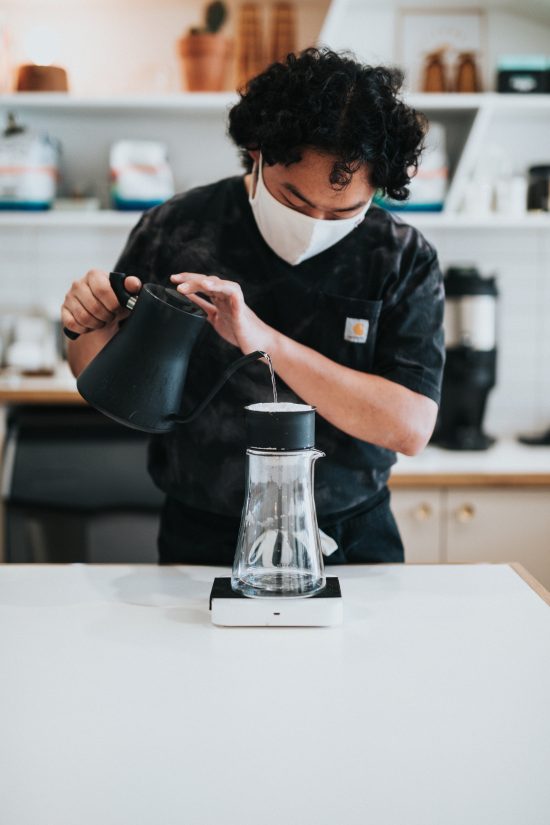
Amidst the COVID-19 lockdown, café ASMR videos have brought viewers a sense of normalcy during abnormal times.
BY EMILY MENESES
SPECIAL TO BARISTA MAGAZINE ONLINE
Photos sourced from Unsplash
Many active web users, especially those within the YouTube community, are familiar with the term “ASMR.” This oddly captivating video phenomenon has found a place in many homes, and its popularity has only increased throughout the pandemic. Short for “autonomous sensory meridian response,” ASMR describes the body’s euphoric response to certain pleasurable stimuli, such as the sight and sound of rain or the peaceful ambience of a coffee shop. The term was first coined by Jennifer Allen in 2011, and it has since turned into a worldwide curiosity.

While some ASMR videos show relatively ordinary scenes like lush forests and candlelit libraries, others depict more peculiar scenarios—like a person chewing gum or giving a cat a massage. Over time, cafés have found a home in this bizarre and expansive virtual world; in fact, coffee shop ASMR is one of the most common focus of sub-categories within this genre. If you look up ASMR on YouTube, one of the first suggested searches pairs the phrase with “café.”
I first delved into the world of coffee shop ASMR when Los Angeles went on lockdown back in March. As an extrovert, I’ve always been the type to work and study in cafés. Even though I was alone, being around other people and hearing the muffled sounds of shuffling footsteps, coffee brewing, and quiet chatter would help me feel more focused and calm. Come lockdown, all of the cafés I typically inhabited transitioned to takeout-only, closing off access to the spaces where I spent most of my free time.
Knowing how much I loved spending time in coffee shops, a friend sent me an ASMR video that would end up comforting me for months to come. This simple video captured the coffee shop experience down to the last detail—the dimly lit lanterns swaying back and forth from the ceiling, the noise of cups clinking and liquid pouring, and even the rush of traffic whirring outside the window.
Amidst a global crisis, ASMR brought me a semblance of normalcy and peace, and though I’m personally new to the trend, these videos have been comforting people since their genesis over a decade ago. A quick search on YouTube reveals countless café ASMR videos created over the years, some of them animated and others created by real-life baristas. Coffee shops like Kumquat Coffee in L.A. have also jumped on the ASMR train, presenting a COVID-safe way to connect with customers.

But what’s the secret behind ASMR? Why is it so oddly satisfying? Scientific studies have shown that ASMR videos are capable of activating brain areas associated with reward and arousal; essentially, they help the brain chemically mimic the experiences of socialization and bonding. It sounds like something from the far-off future, but if there’s anything that 2020 has taught me, it’s that the future is now.
The rise of ASMR has attracted an array of opinions; many Gen Z-ers and millennials like myself find joy in the trend, while others see it as a symptom of the growing isolation individuals are experiencing in our modern-day world. But in the wake of COVID-19, the aforementioned isolation is no longer a “choice”—and my personal view is that if something helps bring a sense of “normalcy” to this very abnormal time, so be it.
I suppose the real question is whether or not this arguably dystopian trend will remain at large even after the world has recovered from COVID-19. When presented with a choice, will we prefer coffee shop ASMR over in-person café experiences? Will we forego actual beach trips in favor of visiting the ocean online? Will we spend our evenings watching videos of people eating instead of actually getting dinner with our friends?
Ultimately, whatever your personal choices end up being after the pandemic, there is absolutely no judgment. There is power to those who are able to find a solution unique to their circumstances.

ABOUT THE AUTHOR
Based in Los Angeles, Emily Joy Meneses is a writer and musician passionate about culture and collective care. You can regularly find her at Echo Park Lake, drinking a cortado and journaling about astrology, art, Animal Crossing, and her dreams. Explore her poetry, short stories, and soundscapes on her website.

